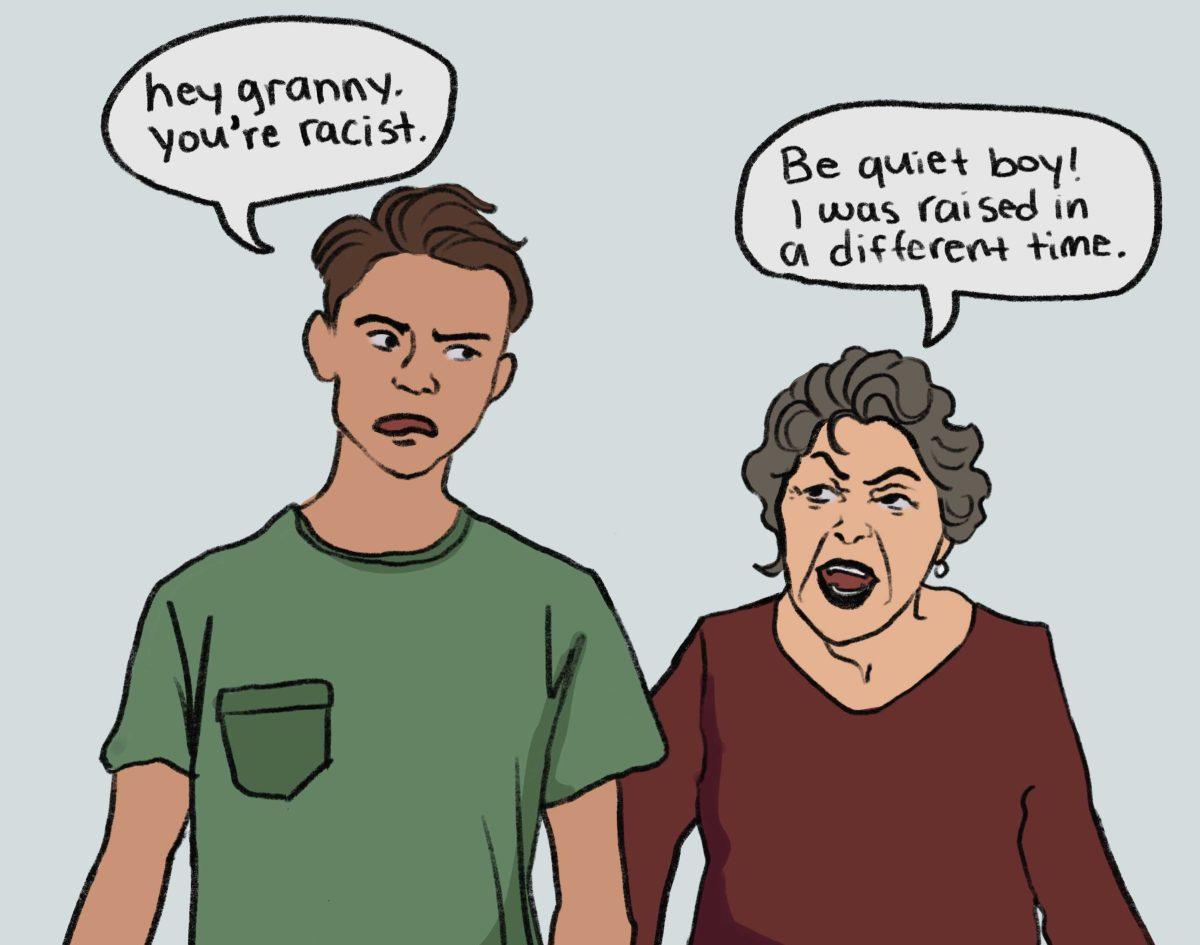We have all been at an awkward dinner or a family gathering and heard this line:
“They grew up in a different time.”
Whether it is a grandparent, a great uncle, a distant cousin or some other elderly person you know, someone just made a racist or homophobic comment. In the south, these comments are not uncommon. Like me, your reaction is probably awkward laughter or silence.
Had one of your friends made an insensitive comment, you likely wouldn’t feel awkward correcting their ignorance, but for some reason, the elderly have been given an excuse. They have an easy, go-to line that gets them out of trouble every time.
Times have undoubtedly changed. According to Gallup polling, in 1958, only 4% of Americans approved of interracial marriage. In 2018, the number rose to 87%. For the majority of young people, the topic of interracial marriage is not controversial.
Because racist ideas were common in “the olden days,” some believe elders can continue this rhetoric without correction. But many things used and practiced today were not common in the past, and older generations still embraced them.
Older generations certainly did not grow up with flat-screen TVs, the internet or GPS, but they had no problem taking advantage of these advances. I see plenty of older people using social media to interact with their families, and that did not seem too hard for them to grasp.
If they can learn to adapt to technological changes, why not social changes?
A normal symptom of aging is difficulty learning new things. It is commonly believed that the brain cannot learn or adapt to new skills past age 25. However, research shows that the brain still has an incredible ability to learn at later ages, admittedly with more effort.
So, sure, there may be a learning curve, but we cannot excuse those who refuse to learn.
While there are some elderly people who cannot necessarily be blamed for inappropriate comments, like older people with Alzheimer’s who have insensitive and uncontrollable outbursts, most can and should be held responsible for their words.
I have seen older people in my life make an effort to change their thinking and beliefs. I know it is possible. Especially when they see that their comments might be hurting someone they care for, they will be more likely to change their behavior.
I know it’s difficult, but instead of awkwardly laughing, correct the comment.
Lura Stabiler is a 22-year-old journalism senior from Baton Rouge.





